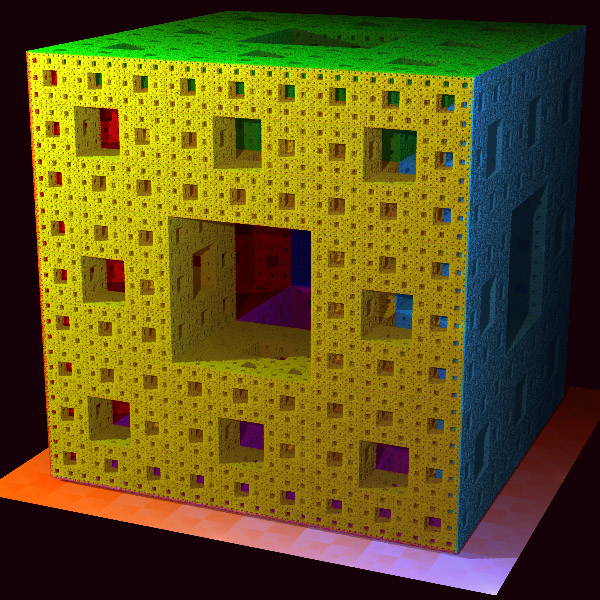
Menger sponge.
Infinite surface area, yet no actual volume.
Moderator: Greg

stewie wrote:Benford's Law
Take a big pile of really random numbers.
If they are truly random, the first digit in each number will NOT be randomly distributed from 1-9. In fact, about 30% of the time, the first digit will be 1.
The number 2 will be the first digit a little over 17% of the time, and the probability drops and drops until you get to 9, which is the first digit only about 4.5% of the time.
This is used by the IRS in forensic accounting and fraud detection.
Truly random data showing extremely predictable behaviour? Fucking awesome.
Mandroid2.0 wrote:Add any single digit number to the number 9 and the the resulting digits in the sum added to each another are the same as the original single digit number.
Mandroid2.0 wrote:The same holds true with double digit numbers, though they have to be reduced to a single digit number first.
Mandroid2.0 wrote:If you do the same thing with multiplication, the end result will always be 9.
emmanuelle cunt wrote:stewie wrote:Benford's Law
What is a random number? I mean, if these are truly random numbers, some of them never end, and if you limit the number of digits, it's not longer purely random.
Is this a "random" number taken from the real world? If so, it is not really random. If this random number is generated by a machine, and this is still true, then I don't get it.
sparky wrote:emmanuelle cunt wrote:stewie wrote:Benford's Law
What is a random number? I mean, if these are truly random numbers, some of them never end, and if you limit the number of digits, it's not longer purely random.
Is this a "random" number taken from the real world? If so, it is not really random. If this random number is generated by a machine, and this is still true, then I don't get it.
If you are smarter than me, the wikipedia articlemight help.
It is all to do with logs, apparently.
EC, I shall be visiting your city on the weekend of 11-13 July! A cheeky drink might be in order!
wiki wrote:Benford's law, also called the first-digit law, states that in lists of numbers from many real-life sources of data, the leading digit is distributed in a specific, non-uniform way.
Hosoi wrote:primes
Return to “General Discussion”
Users browsing this forum: No registered users and 0 guests